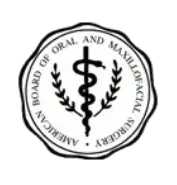Teeth Whitening & Health: Are Coffee and Tea Bad for Teeth?
By: Park Avenue Dental
Can't start your day without coffee or tea? This article helps you figure out its impact on your teeth. The Woodview Oral Surgery Team
Coffee and tea provide much-needed pick me ups in the morning, but if you're interested in getting whiter teeth, you might be wondering if you need to give up your go-to caffeinated beverage. Read on to find out whether coffee and tea are friends or foes to a beautiful, healthy smile. First, let's take a look at staining.
Does Tea Stain Your Teeth?
The short answer is yes, tea stains teeth. The darker the tea, like black tea, the more of a staining effect it will have. Herbal and green teas tend to stain less, but they can still contribute to yellowing of your teeth.
Tea stains teeth because of its high tannin content. Tannins are also responsible for the staining effect of red wine. Brushing immediately after drinking tea can help reduce staining. Professional teeth whitening in your dentist's office is a great way to lighten stains from tea.
Does Coffee Stain Your Teeth?
Coffee's caffeine content might put a smile on your face in the morning, but it can also contribute to a duller smile. Coffee contains fewer tannins than tea, but it has enough pigment and acids to give your teeth a yellowish tinge over time. If quitting coffee isn't an option for you, consider rinsing your teeth with water or brushing your teeth after you drink it. The same advice applies to drinking tea.
In addition to staining and discoloration, coffee and tea can have other negative consequences, like the ones listed below.
Enamel Erosion
Acidic foods and drinks can lead to enamel erosion and tooth decay. Coffee is acidic by nature, and sweetened tea and sugary coffee are both culprits in tooth decay. When you drink a sugary beverage, the sugar adheres to your teeth. Then, natural bacteria in your mouth start to eat at the sugar and produce acid that erodes the enamel, leading to tooth decay. To reduce your risk of tooth decay, cut down on sweetened teas and sugary coffee.
Teeth Clenching
If you drink too much caffeine or drink it too close to your bedtime, it can interfere with the quality of your sleep. It's also been found to lead to jaw clenching during sleep. Clenching your jaw can put stress on your teeth that leads to jaw pain and tooth erosion. The obvious solution is to cut back on the amount of caffeine you drink or to stop drinking early in the day. A general recommendation is to stop drinking all caffeinated beverages at least six hours before bedtime.
The Good News: Benefits of Drinking Coffee and Tea
Scientific research is showing that there seem to be significant benefits to oral health from coffee and tea consumption. In a study conducted in Brazil, coffee was demonstrated to destroy the bacteria that lead to dental plaque formation. Plaque is the primary offender when it comes to tooth decay and gum disease. Researchers used an extract of Robusta coffee, which contains a high amount of caffeine and polyphenols, in their study and found that teeth that were treated with the coffee extract had lower levels of the plaque-forming bacteria than teeth that were treated with plain water.
Tea and Gum Disease
The polyphenols that are present in tea may also help protect your dental health. Their anti-inflammatory effect may contribute to the prevention of the gum inflammation that can lead to gingivitis. One study found that men who drank green tea on a regular basis had a decrease in all three indicators of gum disease. To reap these benefits, you need to keep your tea sugar free.
Coffee and Cancer Prevention
There's another very encouraging study published by the American Cancer Society stating that people who drank four cups of coffee a day or more had half the risk of death from mouth and throat cancers than those who only drank coffee now and then or not at all. Those findings apply to caffeinated coffee only. They credit the variety of antioxidants and polyphenols in coffee for its potentially protective benefits. Tea was not shown to have the same kind of benefit in regard to mouth and throat cancer. However, the abundance of antioxidants it contains can help reduce the risk of heart disease, type 2 diabetes and certain other kinds of cancer. The antioxidants can also help support a healthy mouth by protecting your teeth from erosion and decay.
Teeth Whitening, Coffee and Tea
If you're interested in getting whiter teeth, you may be considering a professional teeth whiteningprocedure. The standard protocol recommended by dentists is to avoid all potentially teeth-staining drinks, including coffee and tea, for 48 hours after a professional teeth whitening treatment. After those two days, you can go back to your regular routine.
As research shows, there are several significant benefits to drinking coffee and tea. To counteract the potential negative effects, including teeth staining and erosion, don't add sugar to your beverages, consider drinking coffee and tea through a straw, and rinse your mouth out with water when you're finished with your drink. As always, don't forget to brush regularly and visit the dentist at least twice a year to keep staining under control.
Source: http://www.parkavenuedentalfl.com/teeth-whitening-health-are-coffee-and-tea-bad-for-teeth/?






5 Stars
based on 48 reviews
5 Stars
based on 15 reviews
5 Stars
based on 11 ratings